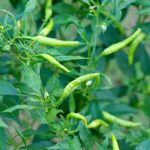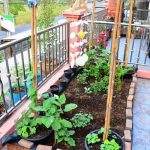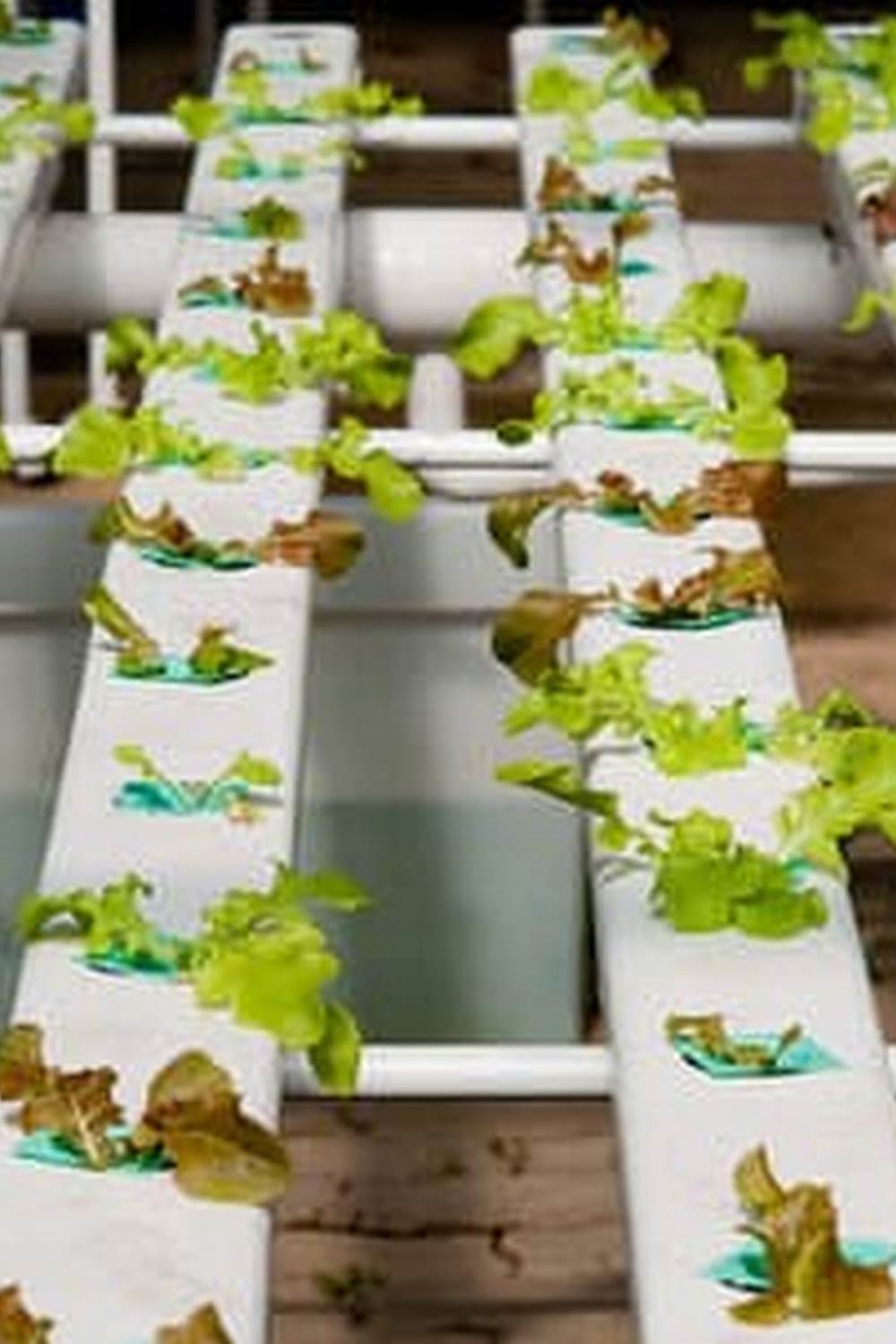Tennessee has a long-standing tradition of vegetable gardening, with its fertile soil and moderate climate providing an ideal setting for cultivating a wide variety of vegetables. From the early settlers to present-day gardeners, the state has embraced the practice of growing fresh produce for sustenance and enjoyment. In this article, we will delve into the world of Tennessee vegetable gardening, exploring the rich history, best practices, and resources available to both novice and experienced gardeners.
The Volunteer State offers a unique environment for vegetable gardening, with its diverse topography and varying weather conditions. Whether you’re in the mountains of East Tennessee or the fertile plains of West Tennessee, there are specific vegetables that thrive in this region’s climate and soil. Understanding which vegetables are best suited for Tennessee’s growing conditions is essential for a successful harvest.
In addition to discussing the best vegetables to grow in Tennessee, we will also provide insights into seasonal planting guides, soil preparation and maintenance tips, pest and disease management strategies, watering and irrigation techniques, as well as the benefits of organic gardening practices. Furthermore, we will highlight local resources, organizations, and events where Tennessee vegetable gardeners can connect, learn from one another, and share their passion for sustainable gardening practices.
Whether you’re a seasoned gardener or just starting out, this comprehensive guide aims to equip you with the knowledge and tools needed to embark on a successful vegetable gardening journey in Tennessee.
Best Vegetables to Grow in Tennessee
Tennessee’s climate and soil conditions create a favorable environment for a wide variety of vegetables to thrive. When planning your Tennessee vegetable garden, it is important to select the right crops that are well-suited for the region. Here is a comprehensive list of vegetables that are known to do well in Tennessee:
Tomatoes
Tomatoes are one of the most popular vegetables (technically fruits) grown in Tennessee. They thrive in the warm climate and fertile soil, producing an abundance of juicy, flavorful fruits from late spring through summer.
Peppers
Bell peppers, chili peppers, and sweet peppers all prosper in Tennessee’s growing conditions. These versatile vegetables add vibrant colors and bold flavors to various dishes and can be grown throughout the state.
Zucchini
Zucchini is a prolific producer in Tennessee gardens. The warm summers and rich soil provide the ideal setting for this summer squash to flourish, yielding an abundant harvest for delicious recipes or preserving.
These are just some examples of the many vegetables that can be successfully grown in Tennessee’s climate and soil conditions. By choosing the right varieties and following best practices for planting and care, Tennessee vegetable gardeners can enjoy a bountiful harvest each year. Whether it’s traditional favorites or unique heirloom varieties, there is no shortage of options for cultivating a successful vegetable garden in Tennessee.
Seasonal Planting Guide
When it comes to Tennessee vegetable gardening, timing is crucial for successful growth and yield. Each vegetable has its own ideal planting time based on the climate and weather conditions in Tennessee. By following a seasonal planting guide, gardeners can maximize the potential of their vegetable crops.
In Tennessee, the climate varies from the mountainous east to the flat river valleys of the west, leading to different growing conditions across the state. For early spring plantings, cool-season vegetables such as lettuce, spinach, and peas are recommended. These vegetables can tolerate cooler temperatures and can be planted as soon as the soil can be worked in late winter or early spring.
As the weather warms up in late spring and early summer, it’s time to plant warm-season vegetables like tomatoes, peppers, cucumbers, and squash. These vegetables thrive in the warmer temperatures and longer days of sunlight. It’s important to pay attention to frost dates when planting these warm-season crops, as they are sensitive to cold temperatures.
In the fall, Tennessee gardeners can extend their growing season by planting cool-season vegetables once again. Crops such as carrots, broccoli, and kale can be planted in late summer to early fall for a second harvest before winter sets in.
Overall, understanding when to plant specific vegetables in Tennessee is essential for achieving optimal growth and yield. By following a seasonal planting guide tailored to Tennessee’s climate and weather patterns, gardeners can make the most of their efforts in cultivating a bountiful vegetable garden.
| Vegetable | Ideal Planting Time |
|---|---|
| Lettuce | Late winter/early spring |
| Tomatoes | Late spring/early summer |
| Carrots | Late summer/early fall |
Soil Preparation and Maintenance
Testing and Amending Soil pH
Before planting vegetables in Tennessee, it’s essential to test the soil pH to ensure optimal growing conditions. Most vegetables thrive in slightly acidic soil with a pH level between 6.0 and 6.8. In Tennessee, the natural soil may tend to be more acidic, so adding lime can help balance the pH.
On the other hand, if the soil is too alkaline, sulfur can be added to lower the pH. Regular testing and amending of soil pH will create a favorable environment for healthy plant growth.
Adding Organic Matter
Incorporating organic matter into the soil is crucial for maintaining its fertility and structure. Compost, well-rotted manure, or cover crops can all be used to improve soil quality and provide essential nutrients for vegetable plants. Organic matter also enhances water retention and drainage, promoting root development and overall plant health. For Tennessee vegetable gardening, it’s recommended to add organic matter at least once a year, preferably in the fall before planting season.
Preventing Erosion
Tennessee’s varying weather conditions can lead to erosion, which can negatively impact the soil’s health and stability. To prevent erosion in your vegetable garden, consider using mulch or cover crops to protect the soil from heavy rain and harsh sunlight. Mulching not only conserves moisture but also helps regulate soil temperature while reducing weed growth. Additionally, implementing terracing or creating windbreaks can further safeguard your garden from erosion concerns within tennessee vegetable gardening.
Ultimately, proactive measures such as testing and amending soil pH, adding organic matter, and preventing erosion are essential for preparing and maintaining healthy soils that support successful vegetable gardening in Tennessee’s diverse agricultural landscape.
Pest and Disease Management
Tennessee is a great place for vegetable gardening, with its rich history and tradition of cultivating a wide variety of vegetables. While there are many benefits to growing your own produce in Tennessee, gardeners also face the challenge of managing pests and diseases that can threaten the success of their crops. Identifying common pests and diseases in Tennessee vegetable gardens and implementing effective methods for control and prevention is essential for maintaining a healthy and thriving garden.
One common pest that poses a threat to Tennessee vegetable gardens is the hornworm, which can wreak havoc on tomato plants. These large green caterpillars can defoliate plants very quickly if not kept in check. However, they can be managed by handpicking them off plants or by introducing natural predators such as parasitic wasps to control their population.
In addition to pests, Tennessee gardeners also need to be vigilant about identifying and managing various diseases that can affect their vegetable crops. For example, fungal diseases like powdery mildew and blight can have devastating effects on plants if not addressed promptly.
Implementing good sanitation practices, such as removing and disposing of affected plant residues, along with using disease-resistant varieties and applying organic fungicides when necessary, can help prevent the spread of these diseases in Tennessee vegetable gardens. By staying proactive and informed about common pests and diseases in the region, Tennessee vegetable gardeners can take steps to protect their crops and ensure a bountiful harvest.
Watering and Irrigation
When it comes to Tennessee vegetable gardening, efficient watering and irrigation practices are crucial for the success of your garden. Tennessee experiences varying weather conditions throughout the year, including hot and humid summers and cooler, wetter winters. As a result, gardeners must be strategic in their approach to watering in order to ensure optimal growth and yield of their vegetables.
To help you navigate the challenges of watering and irrigation in Tennessee, here are some strategies to consider:
- Use Mulch: Mulching your garden beds can help retain moisture in the soil and reduce the frequency of watering. Organic mulches such as straw or wood chips can also enrich the soil as they break down over time.
- Invest in Drip Irrigation: Drip irrigation systems deliver water directly to the base of plants, minimizing evaporation and water waste. They can be especially beneficial for larger gardens or during periods of drought.
- Water in the Morning: In Tennessee’s hot summers, it’s best to water your vegetable garden in the morning to allow the plants to absorb moisture before the heat of the day sets in. This can help prevent water loss through evaporation.
By implementing these watering and irrigation strategies, Tennessee vegetable gardeners can effectively manage their water resources while promoting healthy growth and abundant harvests. Whether you’re growing tomatoes, peppers, squash, or any other vegetables suited for Tennessee’s climate, mindful watering practices are essential for a thriving garden.
Organic Gardening Practices
Organic gardening offers numerous benefits for sustainable and eco-friendly vegetable cultivation in Tennessee. By avoiding synthetic pesticides and fertilizers, organic gardening helps maintain a healthy ecosystem, fosters soil fertility, and protects the environment from harmful chemicals. In Tennessee, the practice of organic gardening aligns with the state’s commitment to agriculture and environmental conservation.
One of the key techniques in organic gardening is soil management. Utilizing natural amendments such as compost and cover crops helps improve soil structure, enhances water retention, and promotes beneficial microbial activity. In Tennessee, implementing organic soil management techniques is essential for long-term productivity and sustainability of vegetable gardens.
Moreover, embracing organic pest and disease control methods is crucial for successful vegetable gardening in Tennessee. Utilizing biological controls, crop rotation, and companion planting can help minimize pest infestations while preserving the natural balance within the garden ecosystem. These practices are not only effective for managing pests but also contribute to the overall health of the garden.
| Benefit | Technique |
|---|---|
| Promotes environmental conservation | Utilizing natural amendments such as compost and cover crops |
| Enhances soil fertility | Implementing organic pest and disease control methods |
Community Resources and Events
In conclusion, Tennessee vegetable gardening offers a rich history and tradition that continues to thrive in the state. With a diverse climate and soil conditions, Tennessee is a great place for growing a wide variety of vegetables. By following seasonal planting guides, preparing and maintaining the soil, managing pests and diseases, and implementing efficient watering and irrigation techniques, Tennessee gardeners can enjoy a productive and successful vegetable garden.
Additionally, Tennessee vegetable gardeners have access to a range of community resources and events to connect with other like-minded individuals, learn from experienced gardeners, and share their passion for gardening. Local organizations provide support, education, and networking opportunities for those who want to further enhance their gardening skills. Furthermore, numerous events throughout the state offer valuable insights into new gardening practices, techniques, and trends.
Organic gardening practices are also emphasized in Tennessee, promoting sustainable and eco-friendly vegetable cultivation. By adopting organic methods, gardeners can contribute to environmental conservation while enjoying healthy produce. Overall, the thriving community of Tennessee vegetable gardeners has access to an abundance of resources and opportunities to cultivate their love for gardening while contributing positively to their local environment. Whether beginners or experienced growers, Tennessee vegetable gardeners have everything they need at their fingertips to succeed in their horticultural pursuits.
Frequently Asked Questions
Is Tennessee Good for Gardening?
Tennessee can be a great place for gardening due to its diverse climate and soil conditions. The state experiences a mix of both hot and cold temperatures, allowing for the growth of a wide variety of plants.
What Vegetables Should Not Be Planted?
Some vegetables may not thrive well in Tennessee’s climate, such as sensitive crops like tomatoes and peppers. Additionally, certain vegetables that require a longer growing season may not be suitable for the shorter growing season in certain parts of the state.
What State Is Best to Grow Vegetables?
States like California, Florida, and Texas are known for being some of the best places to grow vegetables. These states have longer growing seasons, milder winters, and fertile soils that are conducive to the successful cultivation of a wide range of vegetables.

If you’re looking to get into vegetable gardening, or are just looking for some tips on how to make your current garden better, then you’ve come to the right place! My name is Ethel and I have been gardening for years. In this blog, I’m going to share with you some of my best tips on how to create a successful vegetable garden.





